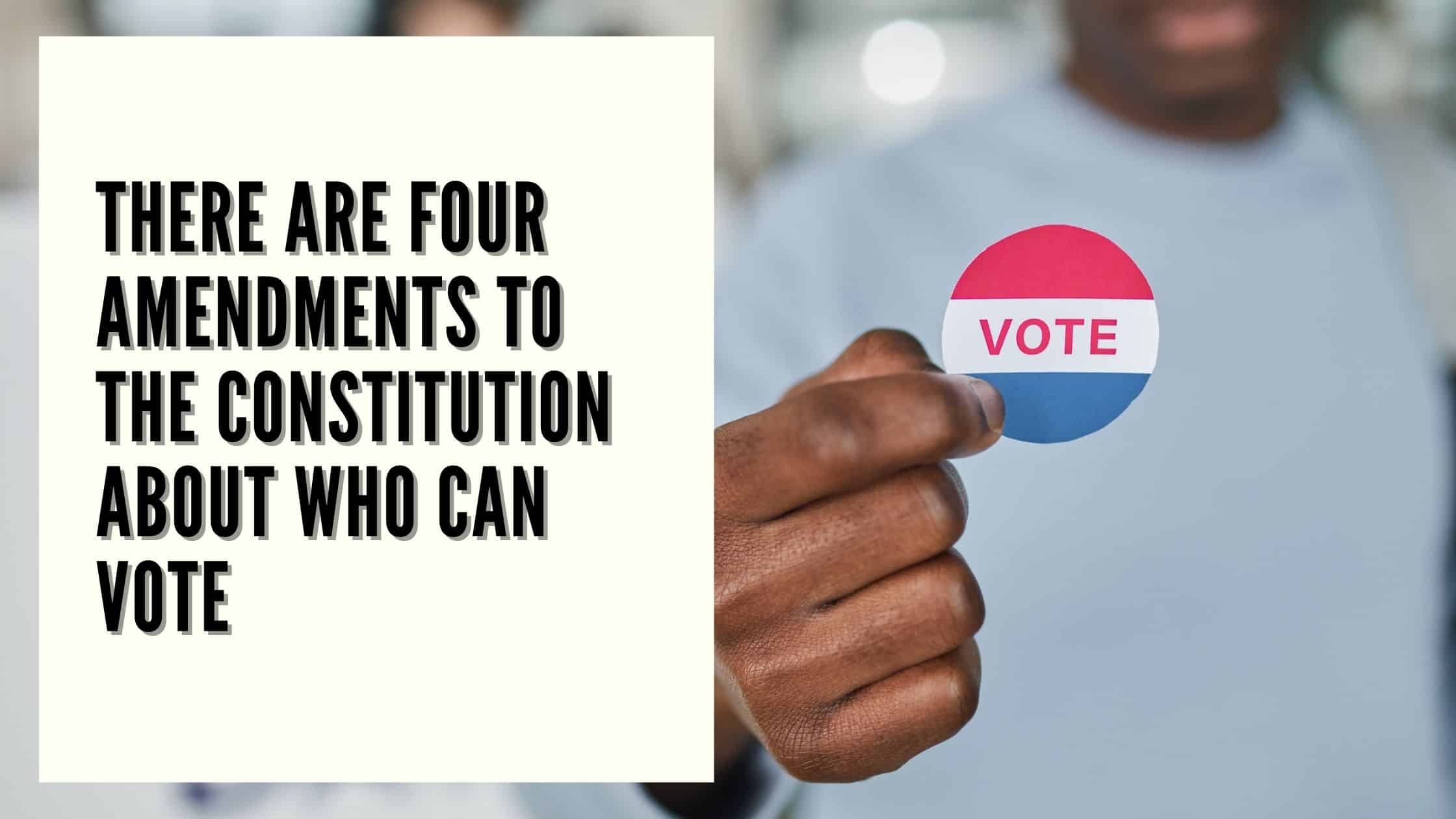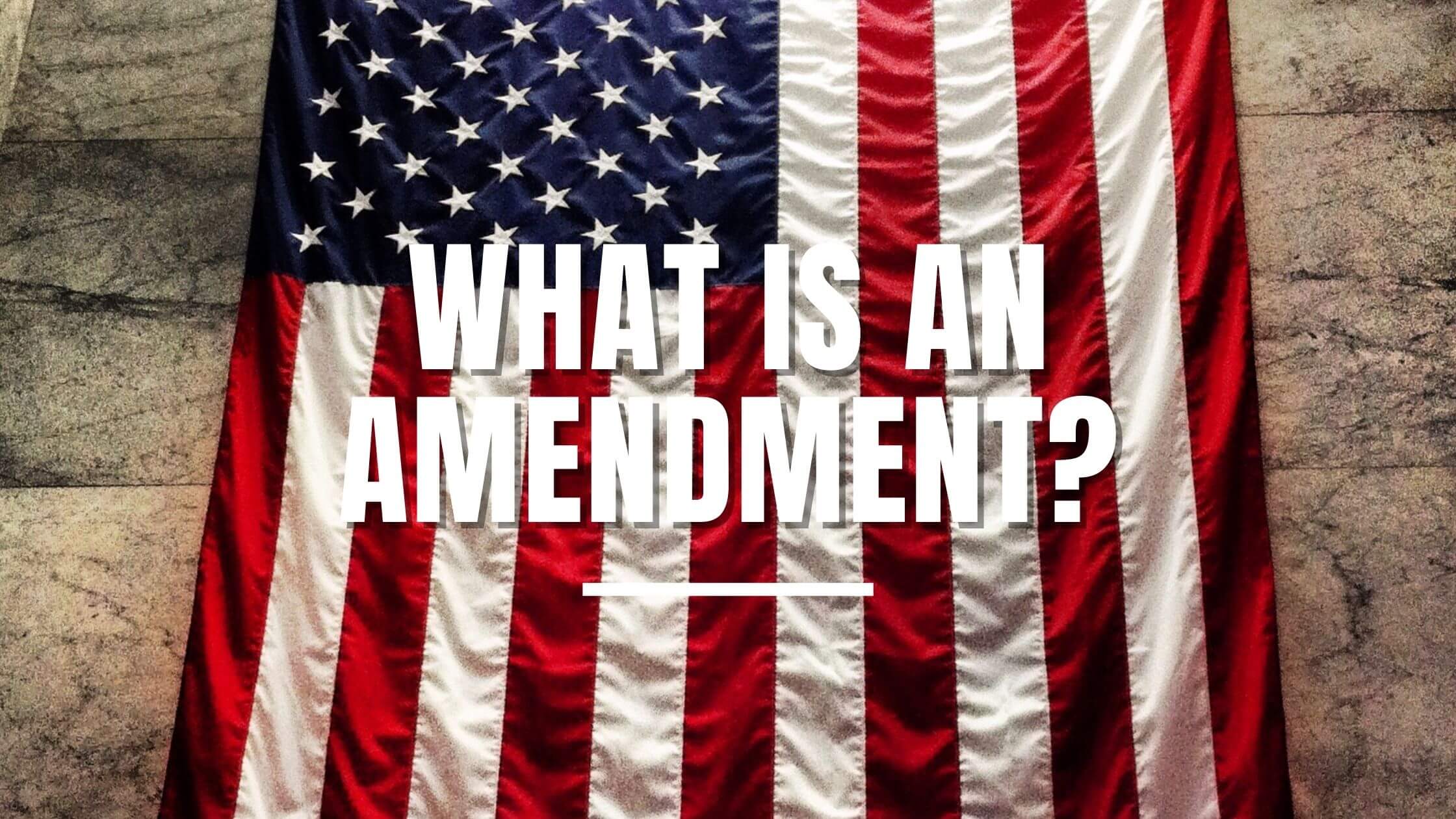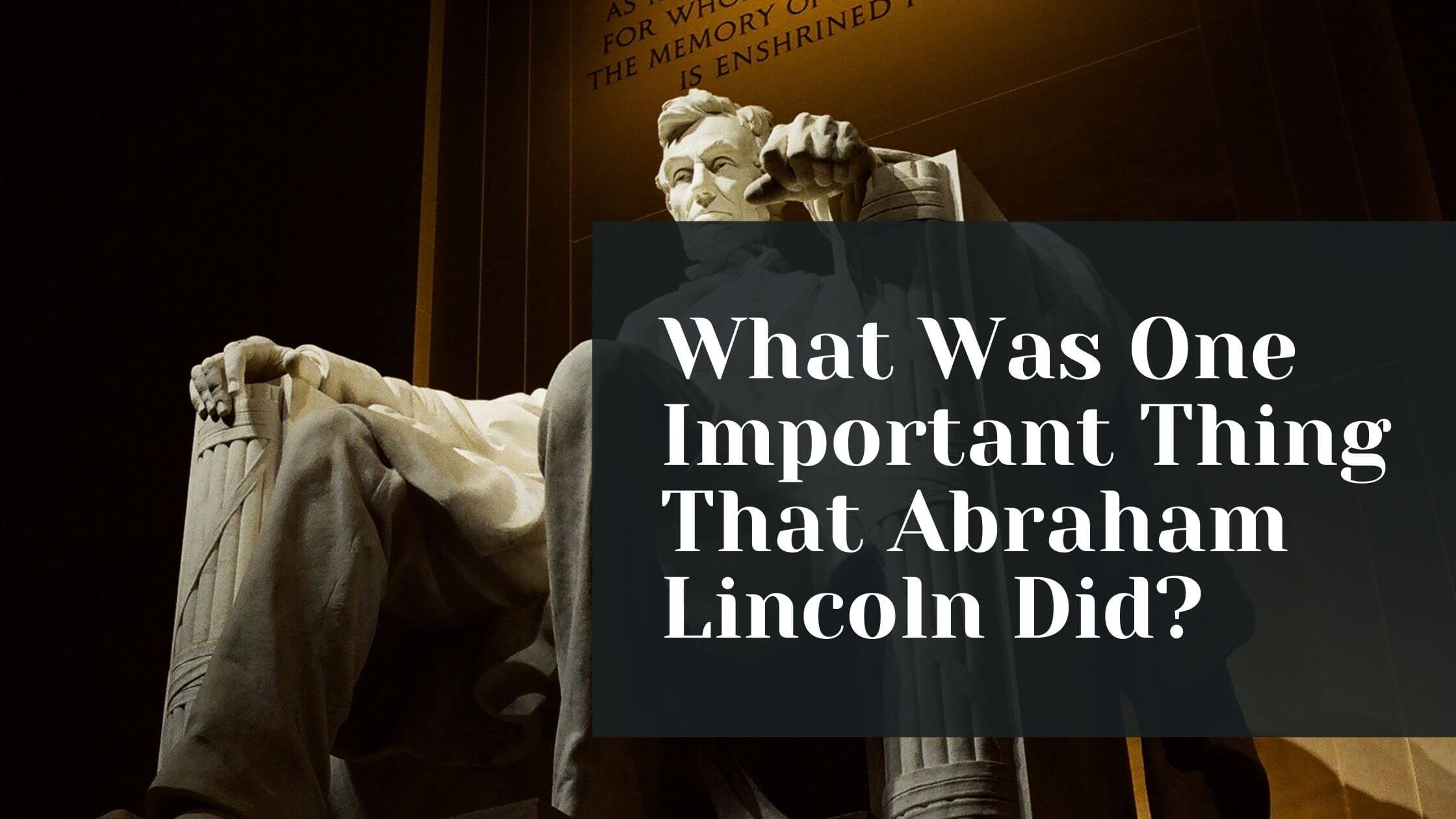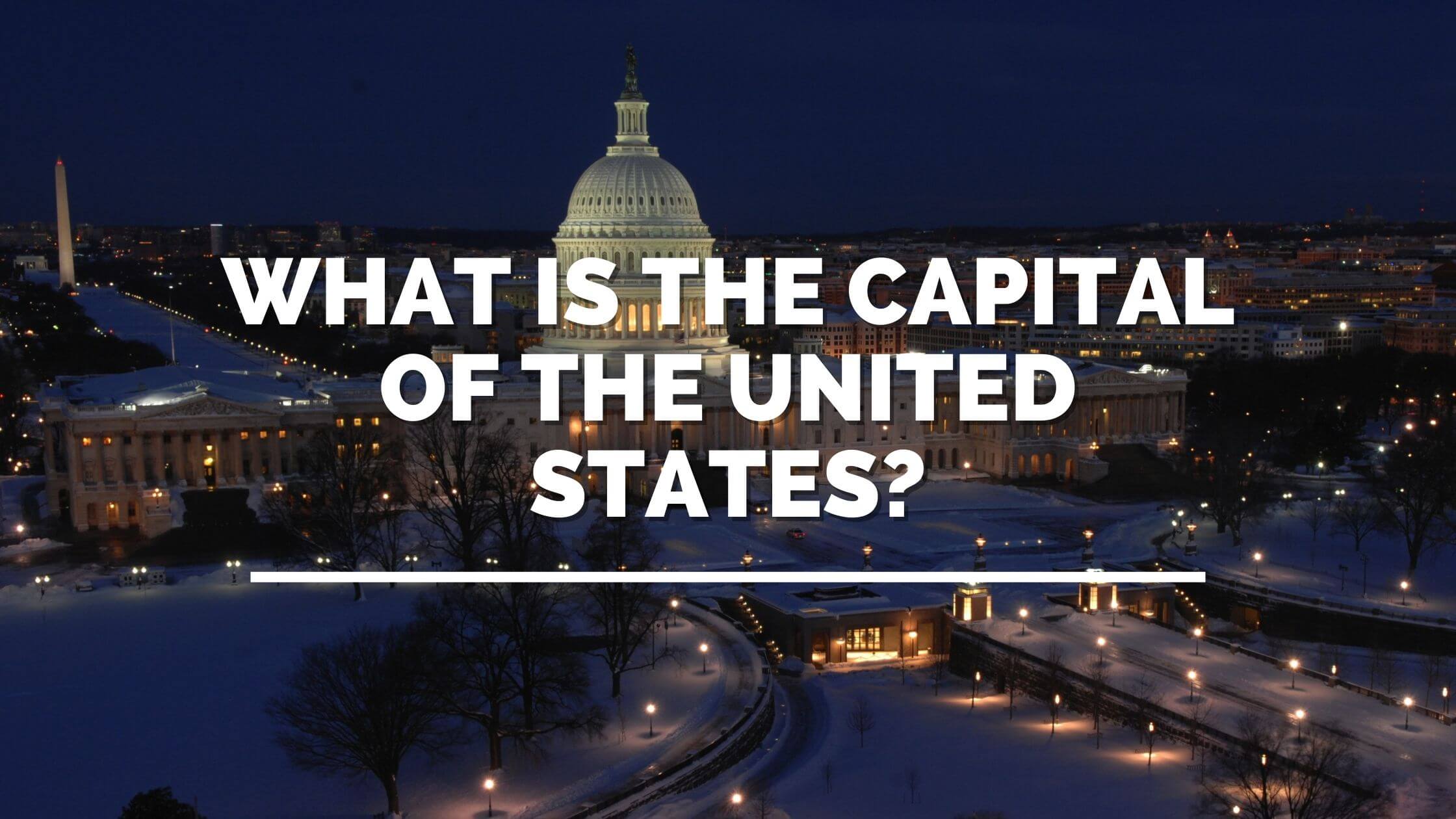Table of Contents
ToggleThere are four amendments to the Constitution about who can vote. Describe one of them.
Answer:
- Citizens eighteen (18) and older can vote.
- You don’t have to pay (a poll tax) to vote.
- Any citizen can vote. (Women and men can vote.)
- A male citizen of any race can vote.
What Amendments to the Constitution Give People Voting Rights?
The 15th, 19th, 24th, and 26th amendments protect people’s voting rights. They eliminate discrimination based on race/sex, make it illegal to require anyone to pay money to vote, and reduce the voting age to eighteen.
The Constitution does not say anything about who can or can’t vote in the United States, and neither does the Bill of Rights.
Initially, there were many restrictions on who could vote in the United States. Four constitutional amendments removed these restrictions, plus the two civil rights acts of 1957/1964 and the Voting Rights Act of 1965.
The Fifteenth Amendment
The Fifteenth Amendment says that all states must let people of all races and all former slaves vote. Since many Americans wanted full equality as soon as possible after the end of slavery, the Fifteenth Amendment was passed in 1870. The fight for African American voting rights took several decades and did not end with the Fifteenth Amendment.
The amendment says that “voting rights must not be denied or abridged,” theoretically meaning they cannot even be partly denied to any race. However, various legal and illegal methods were used to prevent Black Americans across the country from voting until 1965.
Sometimes, black voters faced harassment, threats, and violence for going to the polls from the 1870s to the 1950s and 60s. There were also literacy tests for African American voters, which were often very difficult to pass. Some states had genuinely equal voting rights long before others.
Voting Rights After the Fifteenth Amendment
It took other legislation in addition to the 15th Amendment to make voting rights equal everywhere. The civil rights movement of the 1950s and 1960s led by Martin Luther King secured the introduction of different pieces of legislation that made the Fifteenth Amendment easier to enforce.
First, there was the Civil Rights Act of 1957. Passed by President Eisenhower‘s government, it aimed to make it easier to prosecute anyone who interfered with voting rights. It empowered federal prosecutors to pursue those who interfered with voting rights and created a civil rights commission that could investigate discrimination.
While the 1957 act was a reasonable step forward, it was not strong enough to end voting discrimination, and neither was the 1960 act.
The Civil Rights Act of 1964 was significantly more powerful. After a long debate that included several failed attempts to weaken the bill, it eventually passed in its original form. The 1964 Act effectively made discrimination illegal in the United States. Even after 1964, a final Voting Rights Act was necessary to eliminate residual discrimination in voting.
The 1965 Voting Rights Act
The 1965 Voting Rights Act completely eradicated literacy tests and put federal examiners in districts with a history of voting discrimination. These districts could not change their voting practices without federal government approval. The Voting Rights Act was legally challenged several times between 1965 and 1969, but was defended by the Supreme Court each time.
The Nineteenth Amendment
The Nineteenth Amendment ensures that both sexes have full voting rights. This took many decades, from the mid-1800s to the 1920s, until the Equal Rights Amendment was proposed. Several proposed amendments allowing women to vote failed to pass before 1920, with the first being voted down in 1878.
The early 20th century was known as the progressive era. Legislators broke up monopolies, passed laws to protect workers, and even banned alcohol for many years. It was a time when people pushed for rapid social progress, including gender equality.
The most important piece of legislation passed during this time was quite likely the 19th Amendment. The 19th Amendment forbids all federal and state laws that deny or reduce anyone’s right to vote based on sex. Unlike the 15th Amendment, it was immediately effective.
African Americans During the Progressive Era
To some extent, African Americans were ignored during the Progressive Era. While there were some black activists at the time who were against voter disenfranchisement, lynching, and Jim Crow laws, the two movements were separate.

Get Smarter on US News, History, and the Constitution
Join the thousands of fellow patriots who rely on our 5-minute newsletter to stay informed on the key events and trends that shaped our nation's past and continue to shape its present.
Because of this, the 19th Amendment did not ensure voting rights for all women in the United States. That would take another 45 years.
The 24th Amendment
The Twenty-fourth Amendment to the United States Constitution bans poll taxes or fees for voting, which were used to discourage minority voters. It was an important part of 1960s civil rights legislation and successfully eliminated poll taxes, which disproportionately affected black voters in at least five states.
Some were left unimpressed by the 24th Amendment and thought it didn’t go nearly far enough. They said that a constitutional amendment should be more meaningful than just banning poll taxes.
However, the Twenty-fourth Amendment was passed alongside civil rights legislation. In combination with the Voting Rights Act of 1965 and the Civil Rights Acts of 1957, 1960, and 1964, it helped make voting equal. After the 1960s, it became very difficult to prevent anyone from voting without facing legal action.
The 26th Amendment
The 26th Amendment makes it illegal for a state to set the voting age higher than 18. Previously, the voting age was 21. When soldiers fought in World War 2, they often did so without having the right to vote, as the draft age was also only 18.
During and after WW2 those soldiers advocated for lowering the age to 18, but the attempt was unsuccessful. Soldiers were expected to fight without having the right to vote.
The age remained at 21 until the Vietnam era when protests were more successful. In 1971, the Twenty-sixth Amendment passed, lowering the age to 18 everywhere.












One Response
As a new immigrant, I am very surprised to learn that some time in the United States, there was a tax imposed to vote.
Kindly provide me more details about this tax, when it was abolished, which states used to collect it, and how much it was?